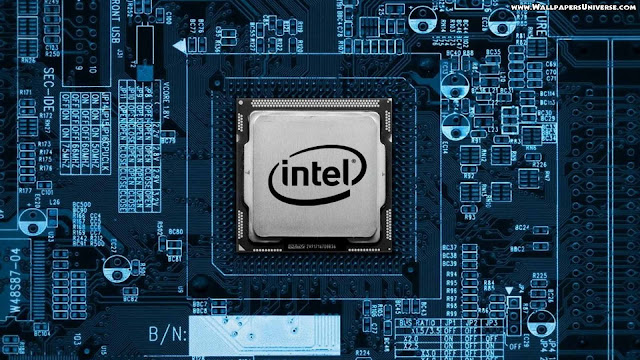The aftermath of Meltdown And Spectre
We're at last
hearing more solid data about this present reality execution effect of the huge
Meltdown and Specter patches, with Microsoft making a few claims about a more
genuine log jam for those utilizing more established Intel chips, and
additionally working frameworks past to Windows 10.
Remember that
Intel’s initial line – following the original stories about the
patches potentially slowing down PCs by up to an eye-watering 30% – was that
the average PC user should not experience any ‘significant’ (i.e.
noticeable) slowdown.
According to
Microsoft, those using Windows 10 along with Skylake or newer Intel processors
experience “single-digit slowdowns”, meaning less than 10%. Generally speaking,
Terry Myerson’s (executive VP, Windows and Devices Group) blog
post (spotted by the Verge) notes that most of these users won’t
notice any difference because “these percentages are reflected in
milliseconds”.
This is
roughly in line with Intel’s latest estimate of the slowdown effect of Meltdown
and Spectre, in which (as CNET reports) the chip giant specifies a 6% (or
less) performance impact – albeit in a modern system running one of its latest
(8th-gen) CPUs along with an SSD. A relatively best-case scenario PC, in other
words.
Intel noted:
“Based on our most recent PC benchmarking, we continue to expect that the
performance impact should not be significant for average computer users.” And
the firm further observed that only specific tasks would really be weighed
down, and that wouldn’t include basic computing tasks like checking your email
or using a word processor.
Sticky
situation
But, back to
Microsoft’s estimations, and this is where things get slightly stickier – those
running Windows 10 with older Intel processors (Haswell, which is 4th-gen, or
older) will experience more significant slowdowns, and “some users will notice
a decrease in system performance”.
Finally,
Microsoft observes that in the case of those running older CPUs (Haswell or
previous) along with an older OS – i.e. Windows 7 or Windows 8 – it expects
“most users to notice a decrease in system performance”.
There's
nothing concrete here as far as genuine figures, clearly, yet in any case this
appears a stressing proclamation, and a long way from Intel's statement that
the normal client won't see anything critical happening to their PC's execution
levels.
Obviously, the
more critical out there might recommend that Microsoft is accepting the open
door to drive Windows 10 to the fore indeed as an 'absolute necessity redesign'
recommendation. In any case, there doesn't appear to be any uncertainty that
the more established working frameworks don't adapt too to the patches.
Microsoft
explains: “Older versions of Windows have a larger performance impact because
Windows 7 and Windows 8 have more user-kernel transitions because of legacy
design decisions, such as all font rendering taking place in the kernel.”
The company
says that its full benchmarking data will be published in the coming weeks,
which is good to hear. It’s further worth noting that Microsoft observes that
when it comes to the performance hit, it’s patching Spectre which is
troublesome. Meltdown (which is specific to Intel chips) mitigation doesn’t
have any real performance impact.
Spectre of
side-effects
In the meantime,
paying little mind to any immediate effect that the Meltdown and Specter
patches may have on your PC, you may likewise encounter opposite symptoms with
regards to online administrations or recreations fixing up their frameworks.
For example,
as the Guardian reports, the developers of online game Fortnite said
they experienced a 30% spike in CPU usage when applying patches for the bugs,
which led to general instability of game sessions and indeed login failures for
some gamers.
These sort of
things will be temporary problems, of course, but clearly they’re still
unwanted bits of fallout from this whole security flaw nightmare.
If you’re
worried about these vulnerabilities, don’t forget that we have a full guide
on how to protect against the Meltdown and Spectre bugs.



Comments
Post a Comment